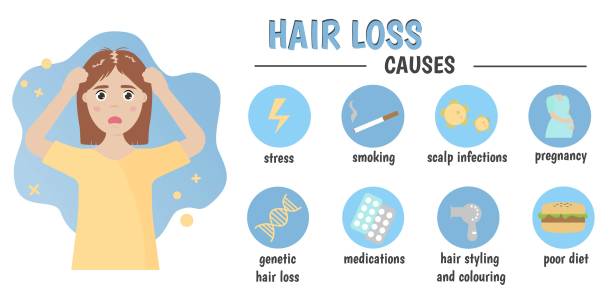Medical hair restoration clinic Pakistan | temporary and permanent solution
Hair loss is also known as Alopecia. We generally lose up to 100 strands from our head daily. But if you’re losing more than this, then you’re in a big trouble and this trouble.
You lose hair as you grow older or the loss could be due to certain diseases. Like
- Diabetes
- Thyroid Problems
- Cancer
- Stress
- Low protein diet
- Poor nutrition
- Genetic
- Medications
Female and male pattern baldness (Hormonal factor)
The hormonal cause of alopecia is a hereditary state known as female-pattern baldness or male-pattern baldness.
Imbalance can also cause alopecia (temporary)
Hair loss can also be due to usage of drugs for the disease like:
- Cancer
- Depression
- Heart diseases and high blood pressure.
.
How to diagnose the problem:
Before taking any drugs or hair transplant surgery discuss the problem with a doctor first. Your complete medical history, physical assessment and family background will help in diagnoses.
Treatments:
Treatment depends on the cause. They include drug treatments or surgery. In some cases, hair may restart growth without any treatment or medications.
Medication
FDA approved drugs include:
Rogaine (Minoxidil):
It comes in the liquid form; you rub it on your scalp for regrowth. It’s highly effective and you will see growth within 13 weeks. It encourages growth by improving the growth phase .
Minoxidil is more effective for women going through androgenetic alopecia. But they should use only 2% of it
Propecia (Finasterdie):
This medicine is approved for males only and taken on a daily basis in tablet form. It decreases the growth of one of the hormones related to androgenetic alopecia. It is effective too, and has some side effects also.
Surgery
Transplantation is the option for those who have lost their hair permanently. Generally, in permanent alopecia, top of your head is affected. In a hair transplant, surgeons remove a narrow strip of skin from the donor area (back side of your head) and use it to fill the bald area of the scalp.
Doctors first clean the bald area of your head and then inject local anesthesia to numb that area from where the grafts will be taken. After taking or removing the strip they suture it on the bald area. Extra sessions are needed to have a good density
Two types of procedures or techniques are common these days; they are FUE and FUT transplant. The extraction of follicles differentiates between the two. In FUT method, the strip is taken from the back and then follicles are extracted from this strip whereas in FUE, follicular units are taken directly from the donor area.
Both the treatments give natural looking results however, FUE is more expensive than FUT.
Scalp reduction:
Scalp reduction is a process that surgically wraps the bald area of your head. After the bald area is removed, the hair covered scalp replaces it. Scalp reduction (Alopecia reduction) is frequently combined with hair transplantation to get better results.
Dangerous methods to avoid:
Flaps, scalp reduction, linear and round grafts are old methods and quite dangerous too. Therefore, they should be avoided.
Wigs
If you don’t want to treat your baldness medically, then you should think about wearing a quality wig or non surgical replacement system.
Medical hair restoration cost in Pakistan
| Treatment | Price | Sessions |
| Medicine | 1500 per month | Continuous treatment |
| PRP therapy | 10,000 Rupee | Monthly |
| Laser Therapy | 3000 Rs | per session |
| Stem cell | 90,000 Rs | one to two |
| FUT transplant | 80,000 Rs | one or two |
| FUE | 75000 to 150,000 Pak Rupee | one or two |
Who is the best doctor for medical hair restoration in Lahore Pakistan?
Dr. Ahmad Chaudhry is the top doctor who can regrow your lost hair through medicine. You may write or call for Free consultation and checkup.
People also search
| Realistic results expectation | Regrow hair after chemotherapy |
| Stem cell hair loss treatment Pakistan |
Temporary hair loss |
Ask from specialist | write us


